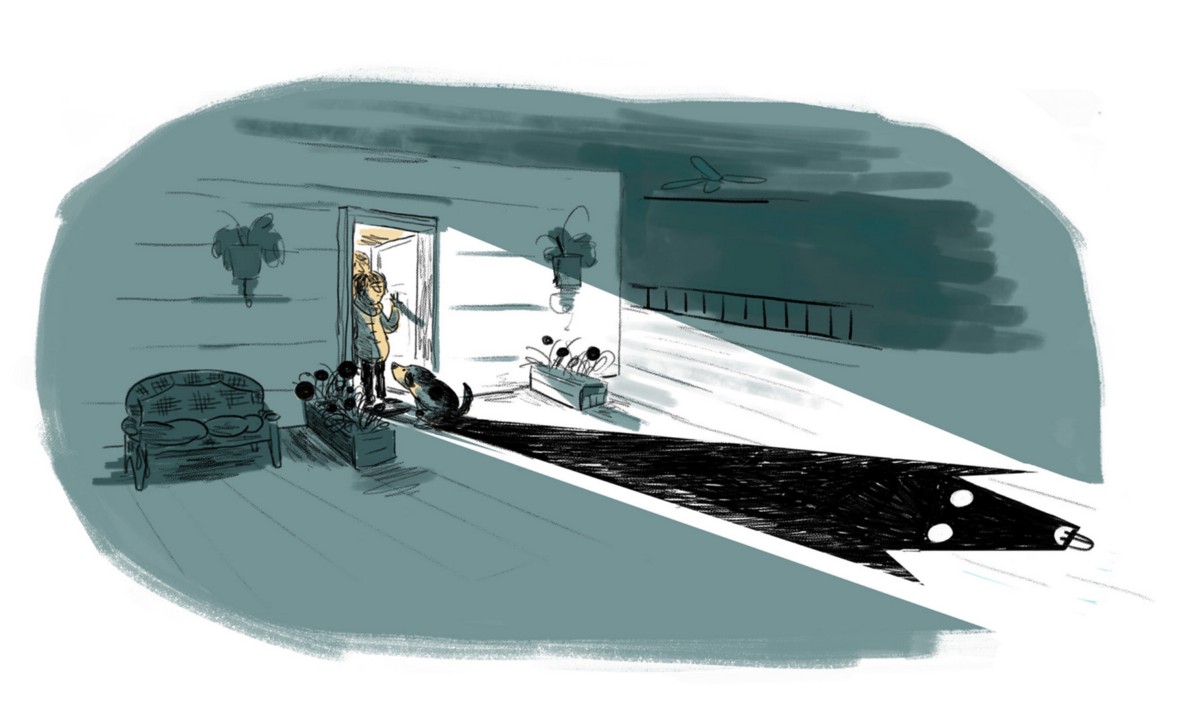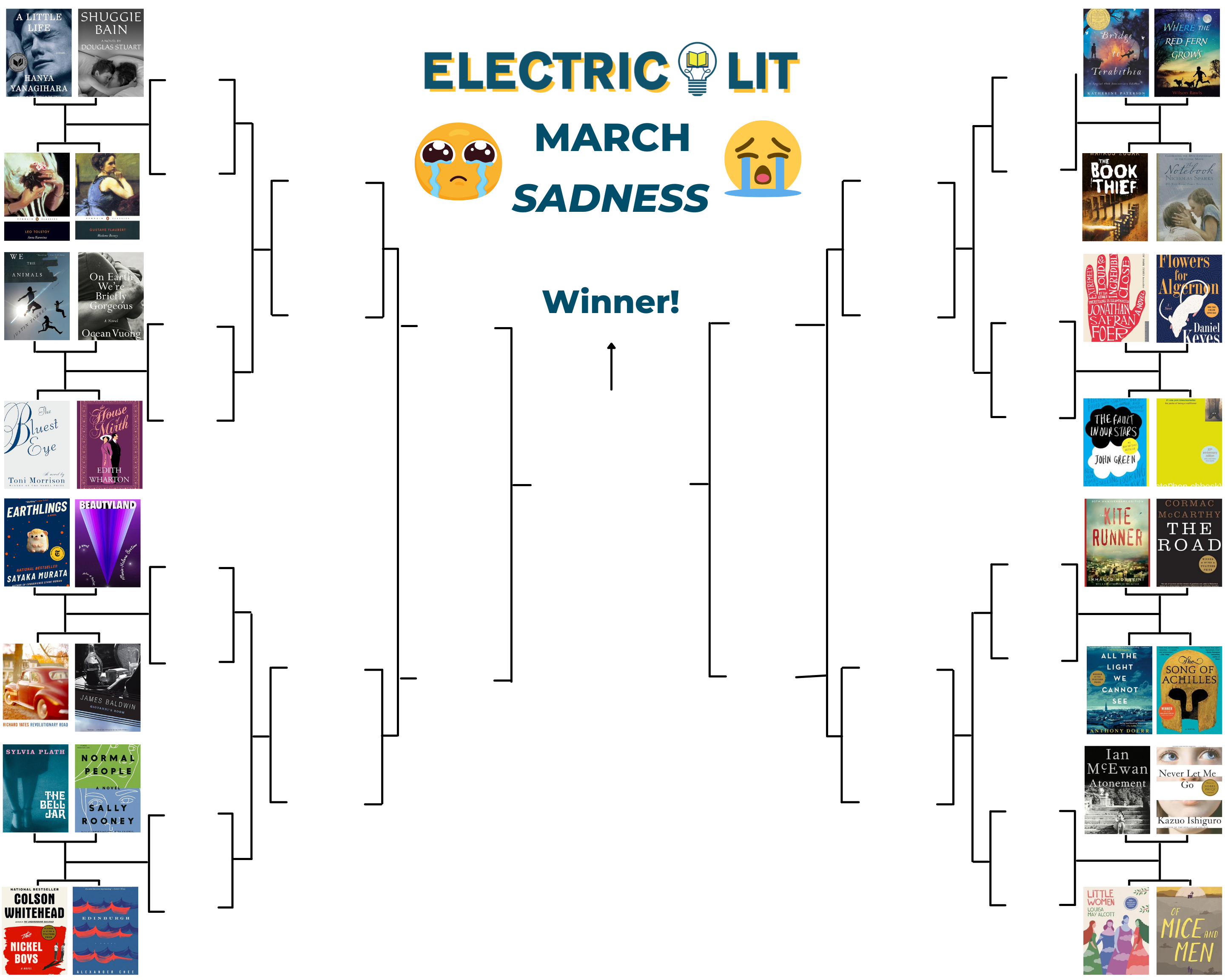news
Behold the Winners of the 280-Character Story Contest
Our five top microfictions, illustrated

Our five top microfictions, illustrated
Two weeks ago, we asked you to write 280-character short stories, in honor of the unasked-for, unappreciated, and frankly awful increase in Twitter’s tweet length restrictions. Uncannily, we wound up with 280 submissions. (Actually, it was 282, but we’ll round down.) Among them were tiny tragedies, tiny comedies, and tiny political satires; there were tiny births and deaths and tiny sex. (And regrettably, tiny failures at following directions, as we received at least a dozen 280-word stories.) We hadn’t known it was possible to pack so much drama into 280 characters, but in accordance with our theme—“the story must be about something getting magically, randomly, inexplicably, or mysteriously bigger, longer, or just… more”—these snippets of fiction seemed to expand to contain something bigger than themselves.
Out of 280 entries, the Electric Literature editors chose five winners, and New Yorker writer and cartoonist Sara Lautman illustrated them. We still hate the 280-character tweets, but with these five writers, at least we know they’re in good hands.

Stephen Aubrey, “Cohabitation”
Our first night living together, we took in that puppy howling outside the door. An auspice, I thought. But we’d never done this before. We didn’t know how small things can grow, what little space we can be left to live in. We were not the sort to abandon something until we were.

M. Lopes da Silva, “Several Coats of Coats”
In the pockets of the coats there were always other, far more dashing tiny coats that — when shaken out and placed in the sun — would promptly grow to full size. In those new coats? More tiny coats. The trouble was that none of them would ever quite fit, no matter what you tried.

Josh Lefkowitz, “A Moment of Silence”
The fans stood in silence for 58 seconds before the hockey puck dropped. Someone remembered the school back east, so they added 26 more. The church; the nightclub; etc. Minutes turned to hours, everyone standing silently. “I’m tired of this,” said a girl. “Quiet,” said the crowd.

James Lough, “When We Lost Alphonse”
We worried when Alphonse tried heroin, which exposed him to the world of marijuana, and quickly opened the door to beer, which naturally led him to pretzels and peanuts. Before we could intervene, we found him enmeshed in a group who allegedly ate nothing but vegetables.

Tamar Nachmany, “Mount Sinai”
All the electronics above my hospital bed are gossiping about when, exactly, I’m going to die. It sounds like a concert I heard in Berlin many years ago. We were told to close our eyes and listen. Static. Beeping. Rain. My monitor is the principal violin. I am not dying alone.
Stephen Aubrey is a writer and theater-maker living in Brooklyn. His writing has appeared in Publishing Genius, Commonweal, The Brooklyn Review, Pomp & Circumstance, and Electric Literature.
M. Lopes da Silva is an author and fine artist living in Los Angeles. Her work has appeared or is forthcoming in Blumhouse, The California Literary Review, and Queen Mob’s Teahouse, and anthologies by Mad Scientist Journal, Gehenna & Hinnom Press, and Fantasia Divinity Publishing. She recently illustrated the Centipede Press collector’s edition of Jonathan Carroll’s The Land of Laughs.
Josh Lefkowitz won the Avery Hopwood Award for Poetry at the University of Michigan. His poems and essays have been published at The Awl, The Millions, The Rumpus, and many other places including publications in Canada, Ireland, and England. He lives in Brooklyn, NY.
James Lough’s upcoming book, Short Circuits: Aphorisms, Fragments, and Literary Anomalies will be published by Schaffner Press in April. His oral history, This Ain’t No Holiday Inn: Down and Out in New York’s Chelsea Hotel 1980–1995 (Schaffner Press 2013) was optioned by Lionsgate Entertainment for TV production. He is a professor of nonfiction writing in the Savannah College of Art and Design’s writing department, which he formerly directed.
Tamar Nachmany is the director of 1010 Residency, a former writer-in-residence at the New Mexico School of Poetics, and a former Johns Hopkins University Woodrow Wilson Research Fellow. Her work has been shown at the Bell House (Baltimore), the Cullom Gallery (Seattle), the Jewish Museum of Baltimore, and other venues. She is currently writing her first novel.
Sara Lautman is a cartoonist, illustrator, and editor in Baltimore. Her drawings have been published by The New Yorker, Playboy, Mad, Jezebel, The Paris Review, The Pitchfork Review and The Awl. She is the Comics Editor for Electric Literature’s Okey-Panky, and in 2016, Recommended Reading published her illustrated “cut-up” collaboration with Shelia Heti, “The Humble Simple Thing.”
Illustrations © 2017 by Sara Lautman.








